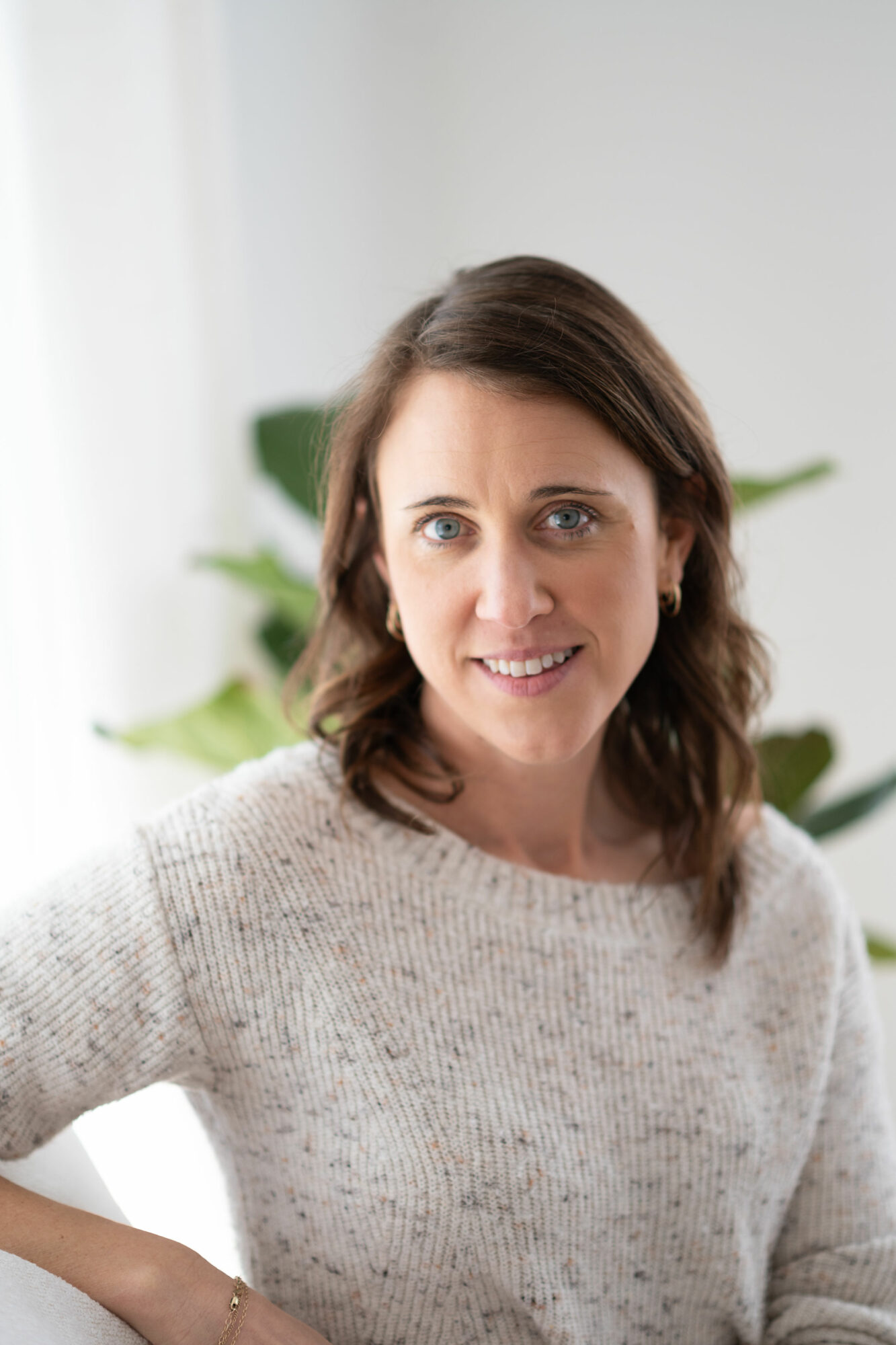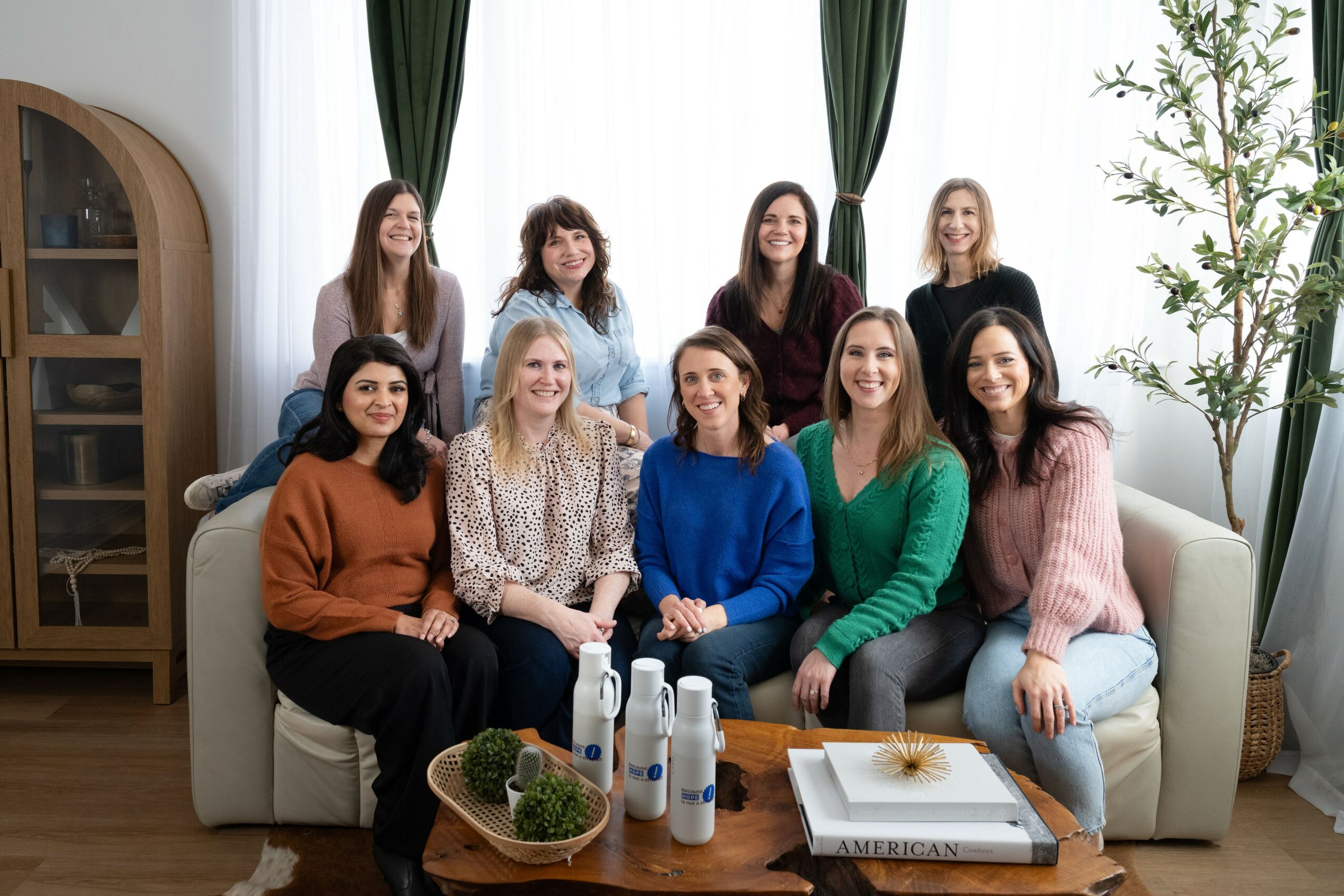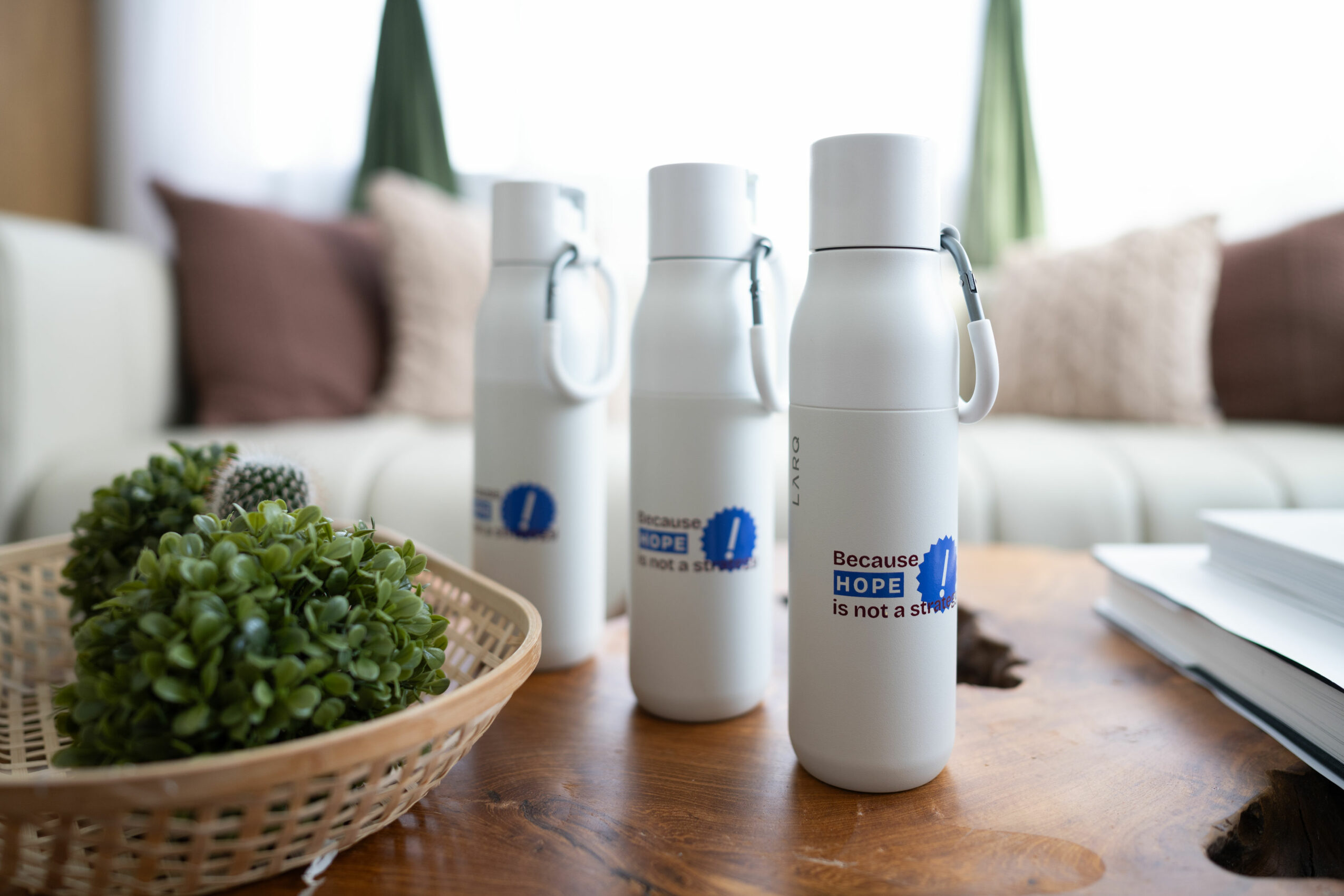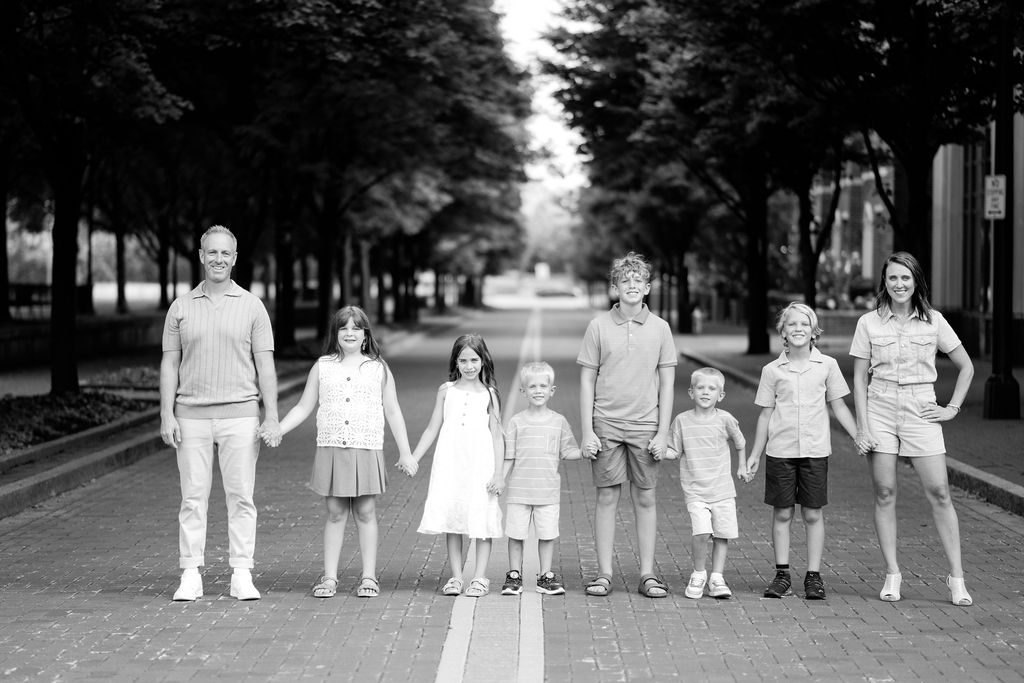

We’re looking forward to introducing you to Mary Wiegand. Check out our conversation below.
Mary, we’re thrilled to have you with us today. Before we jump into your intro and the heart of the interview, let’s start with a bit of an ice breaker: What is a normal day like for you right now?
I’m not sure there’s such a thing as a “typical” day for me—but there is a rhythm to the week.
Most mornings start before breakfast…well, before my breakfast. First, it’s kids’ breakfast and the bus stop/daycare shuffle. But before that, I sneak in a bit of what I call “front of house” work—the client-facing side of the business. That might mean diving into analysis, reviewing sales performance, or refining recommendations. It’s the kind of deep-focus work I like to get done before the coffee kicks in and the email floodgates open.
The whole dream of Boon was built around making it possible for me—and the (mostly) women on my team—to do meaningful, impactful work and nurture our families. So for most of us, a “typical” day is designed to fit between school bus pick-up and drop-off. As the founder (and a naturally early riser), I start a bit earlier to take care of a few extra things that keep the business moving forward.
Once everyone’s out the door, I sit down for my own breakfast (finally) and shift gears. The rest of the day is a mix of client calls, team check-ins, and conversations with founders who are either growing at lightning speed or trying to figure out where the lightning went. Some days, I’m also teaching inventory planning and demand management techniques to emerging retail brands—helping them set up systems that will keep them sane as they scale.
There’s always some “back of house” work in the mix too—things like payroll approvals, staying on top of compliance (glamorous, I know), and collaborating with our marketing director on upcoming campaigns. I also meet regularly with our director of client success to hear client feedback firsthand—because I believe in fixing small things before they turn into big things. And a couple of times a year, I’m on the road at retail conferences—keeping a pulse on industry shifts and connecting with brands we’d love to work with in the future.
I aim to wrap up by school bus and daycare pickup, which means the last 20 minutes of my workday often feel like a speed round on a game show: “Can she answer three emails, approve a budget, and remember to grab snacks before the bus arrives?!”
No two days are identical, but they all share one thing: a blend of strategic planning, problem-solving, and people—whether that’s my team, our clients, or my own family at the breakfast table.
Can you briefly introduce yourself and share what makes you or your brand unique?
I’m Mary founder of Boon, where we specialize in bespoke inventory management services for mission-driven, product-based brands. In plain English that means my team helps growing retailers get the right product in the right place at the right time—so they can win customers, grow profits, and avoid the costly mistakes that happen when inventory planning gets left to guesswork.
I started Boon in 2017 with a simple belief: every retailer—no matter their size—deserves access to exceptional inventory planning and forecasting expertise, not just the big players with in-house teams. Our woman-owned and operated business now has a dedicated team of retail experts with over 200 years of combined experience across global brands, scrappy startups, and everything in between.
What makes Boon unique is that our mission is two-fold:
Support small and scaling brands so they can confidently grow without paying the “learning tax” of trial-and-error inventory mistakes.
Create flexible, fulfilling careers for our female team—careers that allow them to do meaningful work and nurture their families, businesses, and passions outside of the office.
We are very proud to work with an amazing client roster that includes many women-owned brands and to offer the kind of personalized, high-touch service that lets founders breathe easier, knowing their biggest business expense is in good hands. Partnering with Boon isn’t just about getting better inventory planning—it’s about unlocking the next level of your business without sacrificing what matters most to you.
Amazing, so let’s take a moment to go back in time. Who taught you the most about work?
The person who taught me the most about work is my dad. He never stayed comfortable or rested on what he had already done—he was always pushing toward what was next. From the outside it looked like ambition, but from him I learned it was really about integrity. If you’ve been given skills and opportunities, you don’t waste them—you use them fully, and then you keep growing.
That mindset was with him from his time in the U.S. Air Force and stayed with him throughout his career as a pilot and later as an engineer in the medical device industry. His work made a real impact, but what left the deepest mark on me was how he carried himself—steady, dependable, always showing up. And somehow, even with all of that, he still had time and energy left for us kids, and usually for some new lawn project too.
Watching him, I learned that real work isn’t just about achievement. It’s about character, about building something that matters, and about showing up for the people who matter most.
What did suffering teach you that success never could?
Suffering has this sneaky way of stripping away everything that’s nice-but-optional and leaving only what actually matters. When things go sideways, I get a kind of hyper-clarity—about my priorities, my business, and even my own limits (and how often those limits turn out to be imaginary).
When I started Boon, it was really just a side gig—a way to stay engaged professionally while focusing more on being a mom and managing my household. But the best laid plans rarely go that way. In 2020, I was hit with a season of major suffering. During a global pandemic, I gave birth to twin boys with no real support, and within a month I made the hard decision to leave a bad marriage and start over as a single mom to four kids. I left the big house and the comfortable financial situation and found myself in a small home with a 5-year-old, a 3-year-old, and two newborns.
Suddenly, there was no space for extras—only survival. I was forced to focus on what really mattered: caring for my kids and turning that “side business” into a way to support us. Things went more sideways than I ever expected, but it pushed me into hyper-clarity about prioritizing and productivity. There was no time to worry—it was all about execution and decision-making. It also kicked my problem-solving instincts into overdrive. I’m not wired to quit—the very idea makes me itchy. But I am wired to adapt.
Over the next couple of years, that clarity helped me shift Boon from a side hustle into a full consulting agency. The biggest change was pulling myself out of the weeds of working in the business and putting my energy into working on the business—building structure, growing a team, and creating something sustainable for the long term.
And while I could tell this story purely as one of business suffering, the truth is that pales in comparison to what I’ve learned from the personal side—especially raising kids in a blended family. It’s still a bit of a taboo subject, and many divorced parents avoid talking about how difficult it can be. Raising kids in any family dynamic is a feat, but doing it alongside exes adds a unique layer of challenge. The hardest struggle of my life has been being a stepmom. My bonus kids are amazing, but navigating parallel parenting dynamics has stretched me in ways that constantly test my patience, strength, and sense of what really matters. What I’ve learned is that even in the messiest situations, suffering can sharpen clarity and reveal strength you didn’t know you had.
Success can make me comfortable, but suffering makes me resourceful. And I’ve learned I’d rather be resourceful than comfortable—because that’s what keeps me, my business, my team, and my family moving forward, especially when the path isn’t clear.
Next, maybe we can discuss some of your foundational philosophies and views? What do you believe is true but cannot prove?
I believe in business karma. I can’t prove it, there’s no spreadsheet for it, and I’m pretty sure there’s no official “Good-Deeds KPI”—but I’ve seen it play out enough times to trust it.
A few years ago, we had a client bully who decided they simply weren’t going to pay for months of completed work. We did everything by the book, even brought in legal help, but ultimately had to take less than we were owed just to close the chapter. Not exactly the Hollywood ending I wanted.
But here’s what happened next —Boon kept growing. The right clients kept showing up. We added new team members. And despite that unexpected revenue loss, I was even able to surprise the team with white hats I’d been eyeing for our summer event—a little symbol of how we choose to show up in business.
Maybe it was coincidence, or maybe the energy you put into the world really does find its way back to you. I can’t prove it, but I’ve built my entire business around the belief that doing the right thing—even when it’s costly—creates its own returns.
Before we go, we’d love to hear your thoughts on some longer-run, legacy type questions. When have you had to bet the company?
I wouldn’t say I’ve “bet the company” in the classic all-or-nothing way, but I definitely bet on the company—hard.
Back in 2020, I was going through that messy divorce and suddenly the business wasn’t just my passion anymore—it was my financial lifeline. I bet big on Boon, investing enough to buy a new house that became both my workspace and a safe place for my kids.
Those early days were intense—I worked pretty much every waking moment that I wasn’t parenting, and sleep was a rare luxury. But it laid the foundation not just for my family’s future, but for the growing roster of retail brands who trust us today.
That experience taught me something important about calculated risks, which brings me to the current bet I’m making on Boon’s future: that while AI can crunch numbers and spot patterns, retail brands will always need human expertise to interpret what those patterns actually mean for their business. I’m not afraid of technology—we use it every day—but I’m betting that the nuanced judgment calls, the ability to read between the lines of data, and the strategic thinking that comes from years of experience can’t be automated away.
Contact Info:
- Website: https://boon-llc.com/
- Instagram: https://www.instagram.com/boon_llc/
- Linkedin: https://www.linkedin.com/company/boon-llc




Image Credits
Light and Lenses Photography











